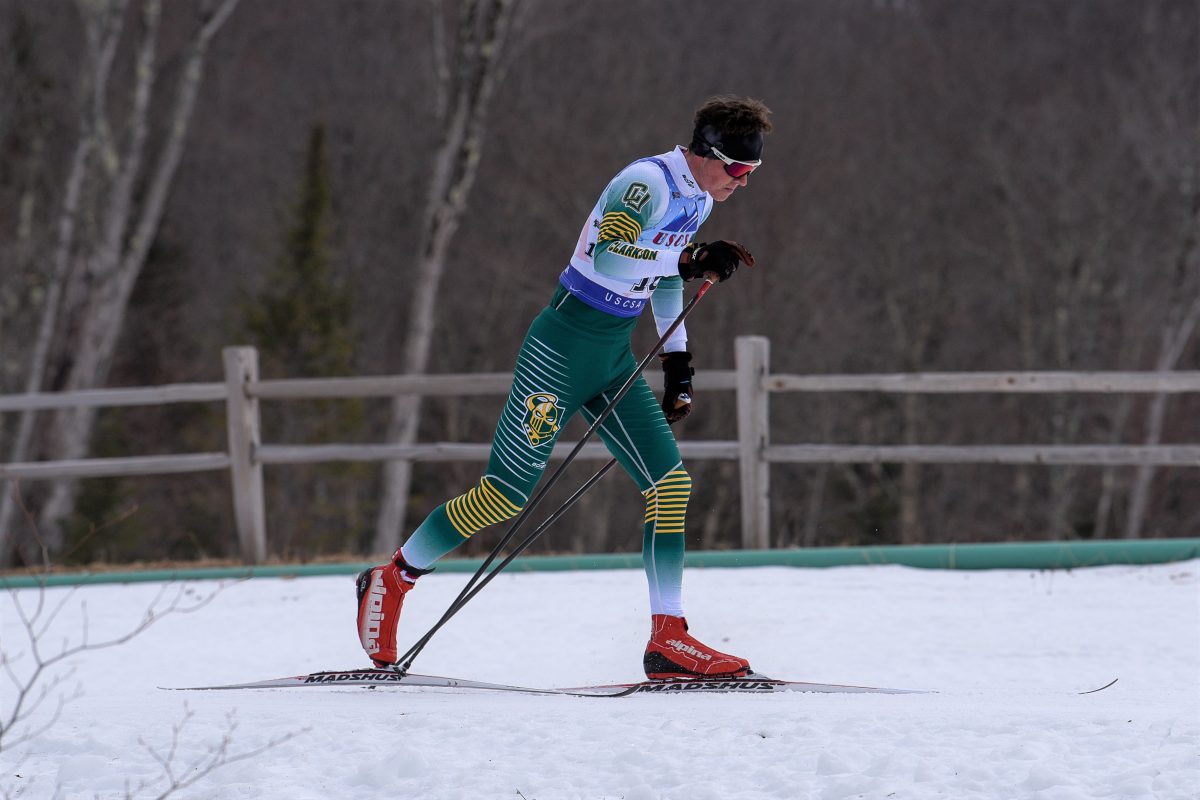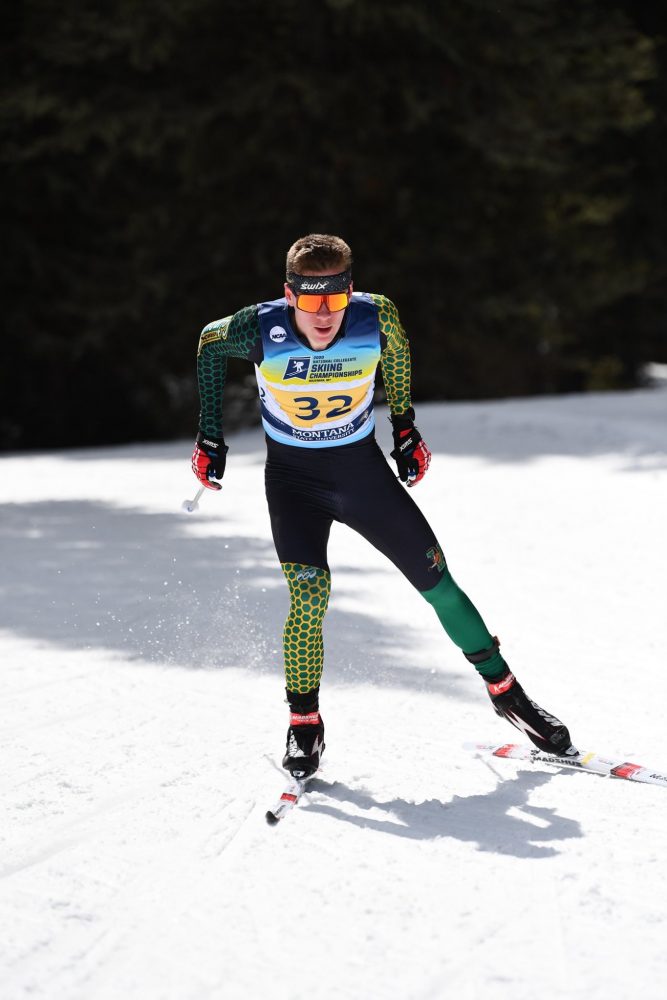USSA is launching the first level of a Coaches Certification Program later this month. The official announcement detailing the program can be found here. USST Development Team Coach Matt Whitcomb answered our questions on this important new program. Before getting into the interview, it is useful to be familiar the basics of the program. The pathway to acquiring Level 100 Certification requires completion of the each of the following:
• Attend a USSA-approved technique clinic (opportunities listed below—USSA technique clinics from 2007 or later will suffice)
• Furnish proof of current First Aid / CPR certification
• Complete a Basic Coaching Principles course ( www.ASEP.com, www.nfhslearn.com/, or other) Editor’s Note: Follow this link to go directly to the ASEP Coaching Principles Course for USSA.
• Purchase Level 100 manual and pass free online test. These will be available for download soon at our online shop at www.USSkiTeam.com
• Maintain active USSA coaching license
The next USST Technique Clinic opportunities are:
Oct 18, 9-noon, GEAR WEST, Long Lake, MN. Meet at Gear West. Contact brodie@gearwest.com . Space is limited.
Oct 25, Mora, MN following MN Public HS meeting, w/ USST coach Matt Whitcomb and CXC staff, 2 hrs. Contact yuriy.gusev@cxcskiing.org
Nov 8, 12—3:00 pm, Boulder Nordic Sport, Boulder, CO. Cl and FR on Rollerskis w/ Nathan Shultz. Clinic is free, but participants must register at www.bouldernordic.com
Nov 26, 1:30-3:30 pm, West Yellowstone, MT. Meet in biathlon stadium, Cl then FR, w/ USST coaches Pat Casey and Matt Whitcomb. Contact mwhitcomb@ussa.org . Space is limited.
Dec 5-7, Stowe, VT, NENSA Gaining Ground Clinic, contact janice@nensa.net
Jan 4, 2-4 pm, Kincaid Park, Anchorage, AK. Cl then FR w/ USST staff. Contact mwhitcomb@ussa.org . Space is limited.
USSA Contact: Finn Gundersen, USSA Director of Sport Education, fgunderson@ussa.org . Please direct all Level 100 questions to Finn.
FasterSkier: Could you tell us a bit more about the evolution of the USSA Coaches Certification program? How long has this project been in the works? Were you the driving force behind it?
Matt Whitcomb: At the 2005 National Coaches Education Conference in Lake Placid, NY we discussed the possibility of a certification program. The topic was not received with great warmth and slid to a distant backburner. The driving force behind the resurgence of the certification system came in 2007 with a call from USSA and the U.S. cross-country community for more education. The creation of the Continental Cup team, whose staffing roles include Coaches Education, allowed for a response to this request. The entire National Team staff and many people at USSA are investing time into this program.
FS: How important is a National Certification System for the sport of cross-country skiing?
MW: A system is critical if we are to continue to make progress on our advance towards Olympic medals in the U.S. We have made large changes within the infrastructure of the U.S. Ski Team in the past three years, most successfully by involving a broad base of clubs that contribute athletes to a larger National Team. The successes have been noteworthy, but the base of the pyramid that was built via these clubs is still too high in the Development Pipeline. An Education Certification System builds the base of the pyramid at the beginning of the Development Pipeline, and in a much broader manner that includes every club in the country, in which all coaches have the opportunity to be educated through a sport-specific system. In this manner, all clubs are a part of a pyramid whose top stone is the U.S. Ski Team.
I am confident that this system will take off. As testimony to the way information is received by the U.S. cross-country community, USSA released a technique CD two autumns ago that demonstrates the U.S. Ski Team’s approach to teaching technique. Two years later at a camp in Lake Placid, N.Y., nearly seventy athletes representing fifteen clubs performed their double poling intervals with such strong and consistent technique that it looked like one giant team. The information was devoured.
FS: Did you work with regional organizations like CXC and NENSA? I know that NENSA has had a certification system for some years now — do you see the USSA system as a replacement, or a supplement, for regional systems?
MW: CXC and NENSA are in the forefront of coaches’ education in the U.S. They are partners, not competitors, and we see their programs as supplements to our initiatives, and vice versa. Specifically, CXC created CXC Academy (www.CXCAcademy.com), an online coaching resource for both coaches and athletes that will serve as a great supplement (but not requirement) to our certification system. NENSA has a two-level certification system. We are working toward ways with which to interface with their program so coaches can affordably be certified with both programs if they choose.
FS: If a coach is certified regionally or internationally, is there any transfer of this certification to the USSA system?
MW: This is a case-dependent question. There is no substitution for our manual/test component, or the technique component of the certification process. But the Basic Coaching Principles requirement may be satisfied by extensive course work or similar classroom education. Questions along these lines may be directed towards Finn Gunderson, USSA’s Director of Sport Education at fgunderson@ussa.org .
FS: Coaches certification is common in other sports here in the US, and in cross-country skiing in other nations. Did you look to any of these as potential models while developing the USSA system?
MW: Yes. To name a couple — we’ve looked to the Long-Term Athlete Development program offered in Canada, to the way U.S.A. Hockey has expanded upon this model, and to sports like U.S. Swimming for content examples on their websites. We’ve also looked closely at the successes and challenges of USSA’s education system for alpine skiing in the US.
FS: Do you have any concerns that coaches will not participate — that some will feel they are too advanced and others won’t see a need if they are only coaching at a local level?
MW: Not all coaches will participate, and that is fine. We can help those that want it, and we know a large group is out there. That said, Level 100 is appropriate for all coaches working with athletes age 12 and older.
FS: What can a coach expect to find in the manual?
MW:
• Introduction to the Development Pipeline
• Goal setting with Andy Newell
• An introduction to Imagery with Jon Hammermeister
• Technique essays for each gear
• Nutrition specific to the Female Athlete Triad
• Physiology and training planning revolving around training intensity zones
• U.S. Ski team Excel training planning document
FS: Talk a bit about the pricing — there is a $110 fee for the manual and coaches will also have to be USSA members — so to participate, coaches will have to pay at least $200 the first year. Is this a potential barrier to entry? And more importantly how do you justify the cost to the ski community? What would you say to someone who believes that the certification should be included in USSA Coaches membership?
MW: Ah yes, pricing. The USSA coaching license will not cover the cost of running the certification system. It is important that the program does not cut into our team funding. Thus the sales of our manual/ Excel training planning document are set for a break-even goal. Costs involved in running the program include compensating non-U.S. Ski Team clinic instructors, and covering travel expenses for U.S. Ski Team staff to reach the various corners of the country for educational projects. There is also a price associated with First Aid / CPR, and for the online Basic Coaching Principles course.
We are putting this program out there in response to a call from members of the cross-country ski community. To some, it may first represent an additional expense hurdle before it represents an opportunity to advance. It is our hope that the foundations, clubs, and programs will help fund their coaches through this process. It is no secret that certification will cost a substantial fee.
FS: Is it possible for a coach to “place out†of any of the requirements?
MW: Yes. If, a coach has attended a U.S. Ski Team technique clinic within the past two years (after Jan 1, 2007), we will accept that clinic to satisfy the technique credit. Past USSA certifications will also be honored.
FS: Do you have any concerns that a national system could result in a dogmatic view of training and technique — where lower level coaches accept the word from above without questioning and challenging?
MW: I don’t believe our views will be perceived this way. The certification system is not mandatory, our technique is presented as one way of teaching technique, and the training planning and physiology content in Level 100 is widely used in many countries. There is nothing revolutionary in this material, or even particularly unique to the U.S.
FS: What is the roadmap for the program? Can we expect an additional level on a yearly basis? How many levels do you ultimately anticipate having? Could you give us a preview of some of the requirements for the higher levels?
MW: The road map for the program is our Development Pipeline (www.ussa.org, Sports, Cross Country, Advancement), and the timeline of new levels will be based on the demands of the country. We will introduce new levels as each existing level is met by a critical number of coaches, but a rough guideline could lead a coach to expect a new level every year for several years.
The goal is to provide education for all levels of our 7-stage Development Pipeline. For instance, Level 100 will be the broadest level in the system as it will be applicable for coaches training athletes that are J3 (age 12-13) and up through the elite senior ranks. Level 200 will tackle a more advanced approach to the steps covered in Level 100, and so on through Level 300. For coaches working with kids under the age of 12, we are currently pointing them in the direction of NENSA’s Bill Koch League Parent/Leader manual, available at www.NENSA.net. This is an excellent resource.
FS: Do you envision USSA requiring certain certification levels for various positions — i.e. level 100 to coach at Junior Nationals, level 200 for J1 Scando, etc?
MW: Starting next season (winter ‘09-‘10) we will be requiring Level 100 certification for coaches to attend trips like J1, Junior Worlds and U23 World Championships. We will put it in the hands of the regions and club directors to decide whether or not they would like to require it for trips like Junior Nationals, or as a requirement to become a coach on their team.
FS: Thanks so much Matt! Is there anything else you’d like to add about the program?
MW: People in the U.S. are about some of the recent successes of its National Team. As a coach, you can support, join, and affect this movement toward Olympic gold medals by ensuring that your developing athletes are efficiently progressing through a healthy, enjoyable, and methodical approach. The team you coach is seen by the U.S. Ski Team as a feeder program. By holding a USSA coaching certification, you will instill confidence in your athletes by demonstrating that they are receiving professional coaching. With this, you will help ensure their training and approach to skiing will maximize their talent as a ski racer. Your involvement with Level 100 Certification will have a huge impact on the U.S ski community. Thanks.
Topher Sabot
Topher Sabot is the editor of FasterSkier.



